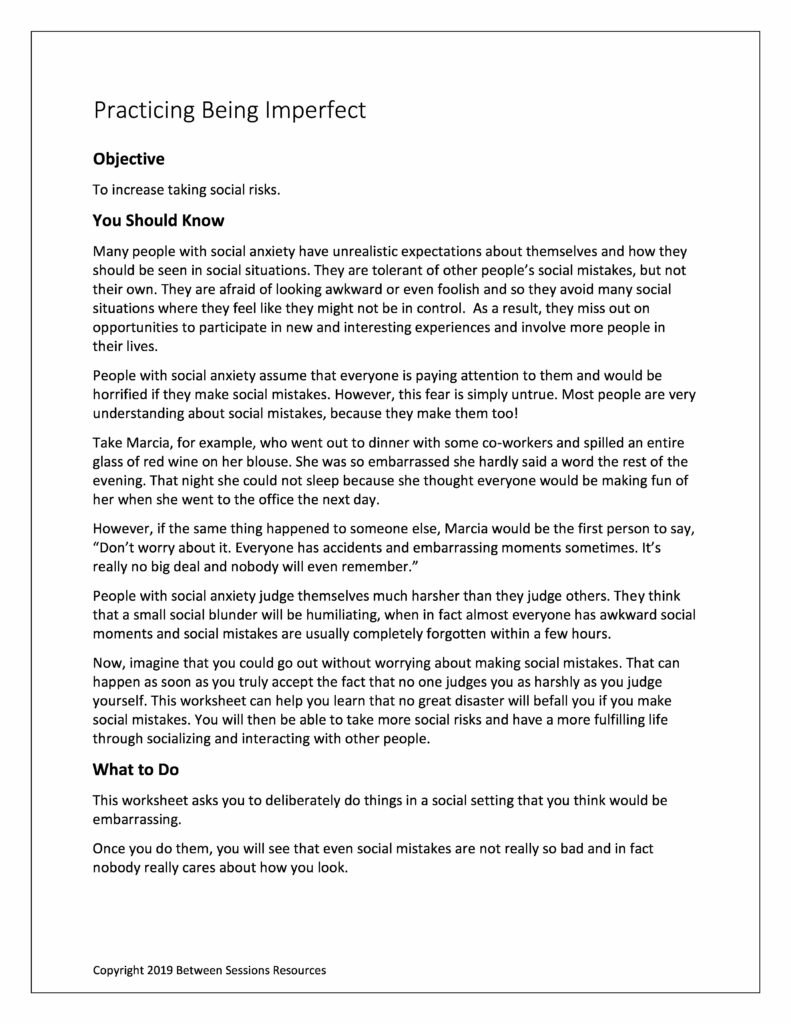Studies tell us that when professionals prescribe therapeutic homework, clients report significantly better outcomes. Our worksheets are derived from evidence-based therapies, and they are designed by experienced professionals. Use the navigation links on the left of this page to view tools in a specific category. Or use the search box at the top of this page to find the exact tool you are looking for.
To modify the tools, click the ‘Send to Client’ button by each tool to open the Psychology Forms Filler. You can then edit the tool as you see fit and either print it out or send it to a client to be filled out online. Click here for a tutorial on using the Psychology Forms Filler.
If you can’t find what you are looking for on this site, please let us know by
clicking here and our team of writers, graphic artists, and therapists will custom-design it for you.
This worksheet is designed to help people who are grieving replace self-critical thoughts with self-compassion. (loss, mourning, grieving, 0619)
This worksheet is designed to help people with eating disorders identify the messages about eating and food that they received in their childhood, from their cultural background, that they received from their social ground, and that they receive from the media. They are also asked to think about how much these messages affect their present problem with eating. (binge eating, anorexia, bulimia, eating disorders, 0619)
This worksheet is intended to help people with Narcissistic Personality Disorder see the value of helping others. (personality disorders, narcissism, empathy, 0619)
This worksheet is designed to help reduce criticism in a relationship and increase support and respect. (marriage, communication, couples, criticism, marital therapy, couples counseling, 0619)
This worksheet is designed to help people assess if they have Binge Eating Disorder and the degree that it affects their lives. (eating disorder, 0619)
This worksheet teaches the DBT concepts of Wise Mind (a balance of the rational and emotional) and One-Mindfully (focusing on just one thig in the moment). These techniques have proven useful with a wide variety of problems. (0519)
This worksheet is designed to help people with social anxiety see that they don’t react to all situations the same way. It asks them to rate the intensity of their anxiety in different situations and also to examine how they cope with situations that cannot be avoided (social anxiety, 0519)
This worksheet is designed to help people take more social risks. Many people with social anxiety dread that they will embarrass themselves in public. This worksheet asks them to choose three situations where they deliberately make a social mistake in order to see that others really don’t care. (social anxiety, shyness, thought distortion, exposure therapy, 0520)
This worksheet is designed to help people with social anxiety learn tolerate the uncertainty of many social situations. The worksheet uses the technique of systematic exposure to help people gradually accept the fact that they can cope with or adapt to almost any situation. (social anxiety, 0519)
The Repeat Technique can be an effective tool to help people express themselves more assertively. This worksheet asks people to think of examples of how they would use this too and then keep a record of how successful it was in real-life situations. (communication, assertiveness, 0519)










